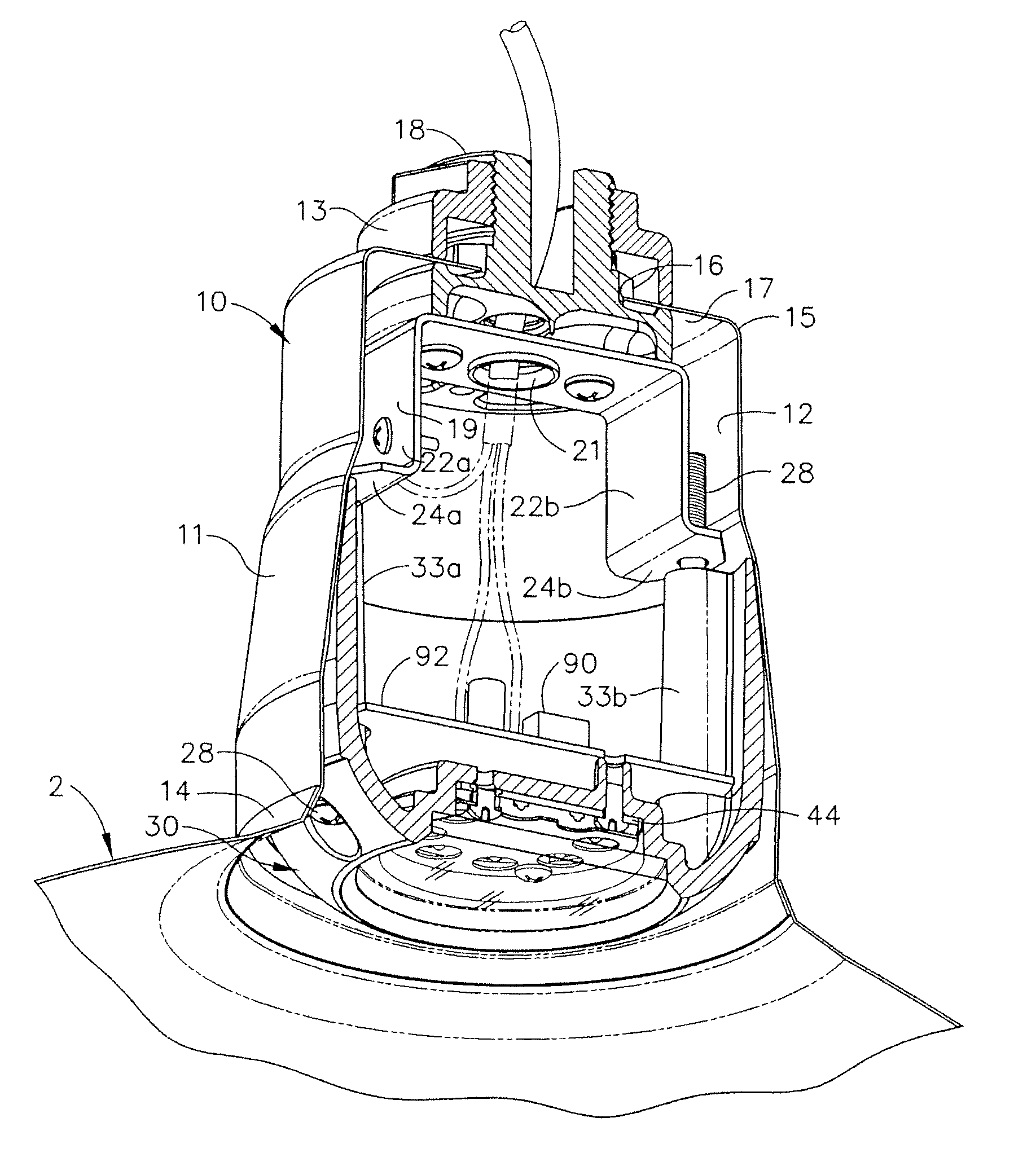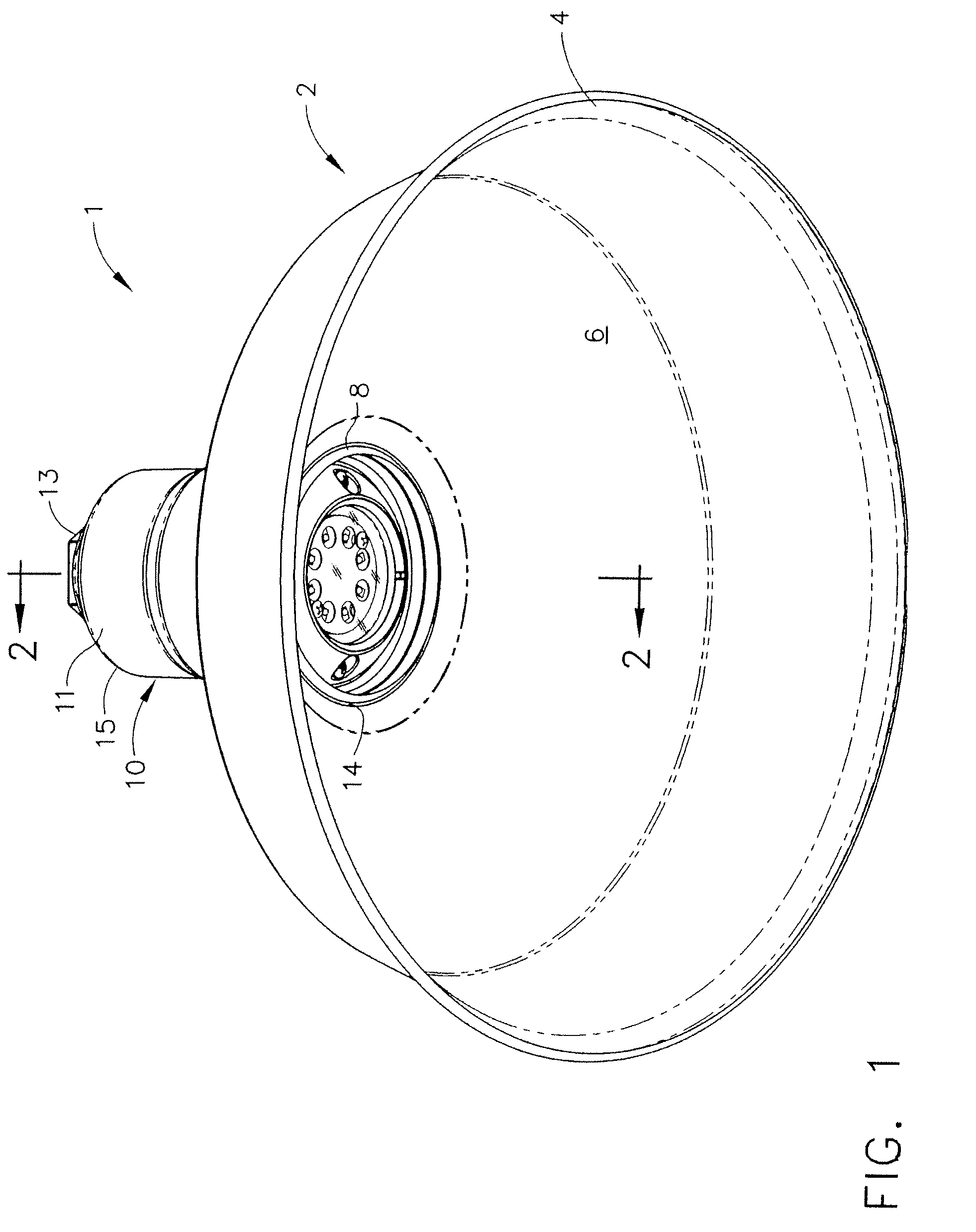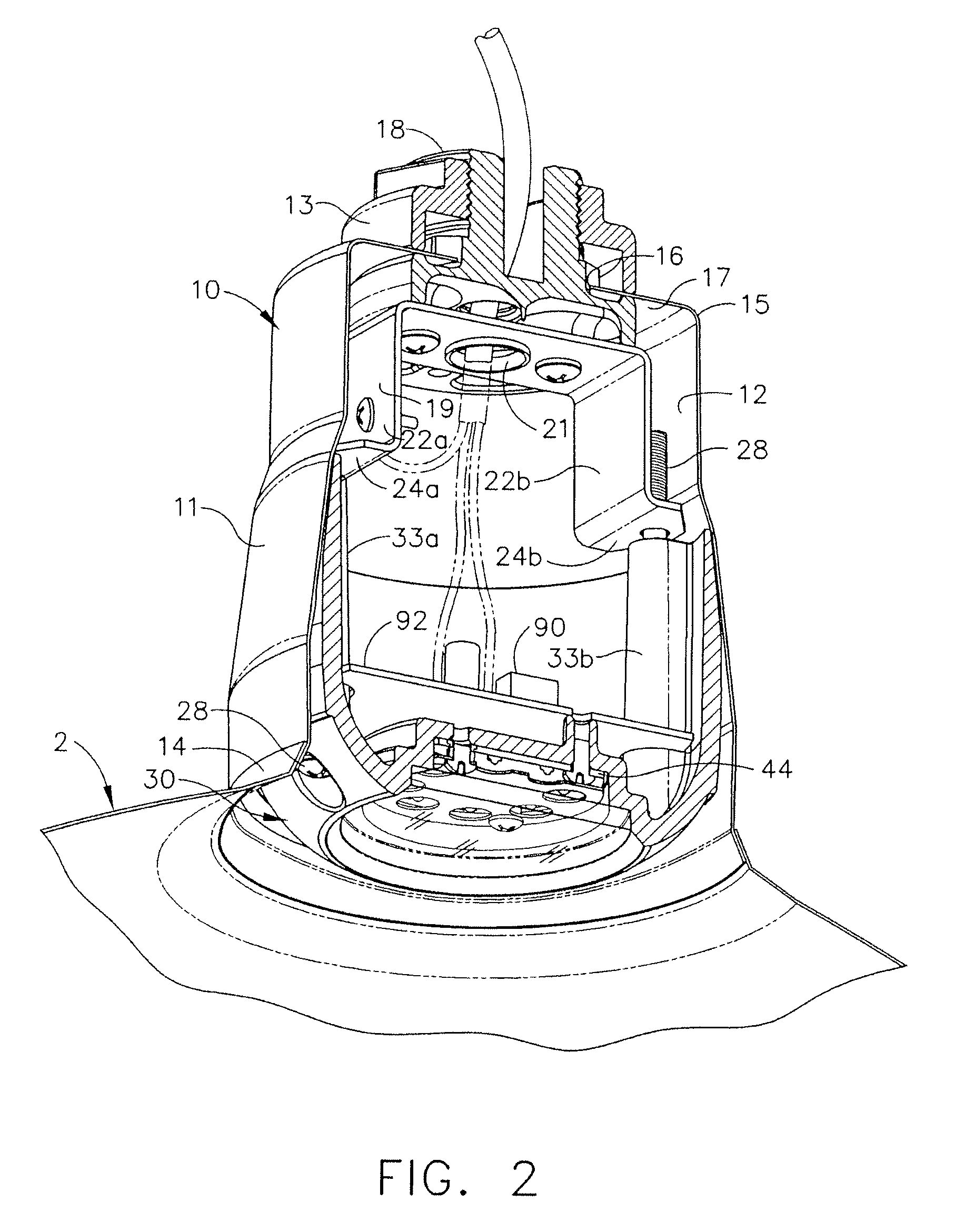LED lamp device and method to retrofit a lighting fixture
a technology of led lamps and retrofitting efforts, which is applied in the manufacture of electric discharge tubes/lamps, lighting and heating apparatus, lighting support devices, etc., can solve the problems of loose efficiency, cost and inconvenience of removing conventional, non-led-based light fixtures and installing new, and retrofitting efforts often fail to address one or more of the functional differences characteristic of led lamps. , to achieve the effect of high thermal conductivity, light weight and high thermal conductivity
- Summary
- Abstract
- Description
- Claims
- Application Information
AI Technical Summary
Benefits of technology
Problems solved by technology
Method used
Image
Examples
Embodiment Construction
[0034]A typical LED-based lamp fixture is shown in FIGS. 1 and 2. The light fixture 1 includes a shade 2 and a collar 10. The shade 2 has a frustoconical shade wall 6 that defines a distal rim 4 and a proximal rim 8 that associates with the collar 10. The collar 10 has an annular outer wall 11 having an inner surface 12. The outer wall 11 is generally a cylindrical shape, though more typically having one or more sidewall portions that taper outwardly from a proximal end 15 to the distal end. The shade 2 is typically fixed to the outer distal rim 14 of the collar 10.
[0035]As shown in FIG. 2, the base 17 located at the proximal end 15 of the collar has an opening 16. The securing means is shown as an adapter 18 that extends through the opening 16 of the base 17 of the collar, and has an opening there through and a first end. The first end is secured, such as with threads, to an electrical conduit or cord (not shown) associated with the structure, such as a light pole, fence, and build...
PUM
 Login to View More
Login to View More Abstract
Description
Claims
Application Information
 Login to View More
Login to View More - R&D
- Intellectual Property
- Life Sciences
- Materials
- Tech Scout
- Unparalleled Data Quality
- Higher Quality Content
- 60% Fewer Hallucinations
Browse by: Latest US Patents, China's latest patents, Technical Efficacy Thesaurus, Application Domain, Technology Topic, Popular Technical Reports.
© 2025 PatSnap. All rights reserved.Legal|Privacy policy|Modern Slavery Act Transparency Statement|Sitemap|About US| Contact US: help@patsnap.com



